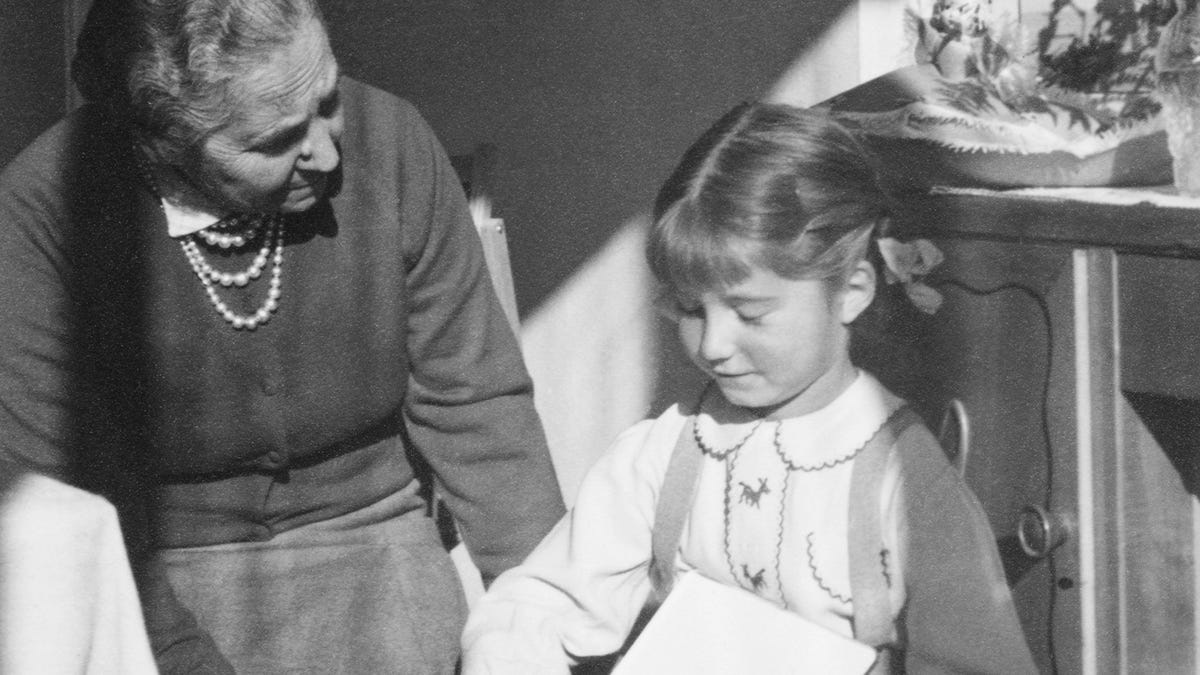I’ll never forget when my maternal grandparents commented to my mom about my weight, basically telling her that her husky family wouldn’t be allowed to sit on her dining room furniture for fear it would buckle underneath our girth. My mother replied by hanging up the phone, and my family was not on speaking terms with them throughout my teens.
This incident was the tipping point of thoughtless toxic behavior my family endured at the hands of my grandparents throughout my childhood, which included pitting relatives against each other, playing favorites, emotional manipulation, and verbal abuse and degradation. While it seemed unusual that I couldn’t speak to my grandparents during holidays and birthdays, it wasn’t until I became a parent that I realized how their toxic behavior affected my mother.
“It’s tricky with grandparents because normally, we can feel when something’s not healthy in a relationship,” explains Stephanie Saari Macadaan, a licensed marriage and family therapist and owner of Renewed Relationships Counseling Group. “But if we grow up with it, it can feel familiar and hard to spot. There are already negative dynamics that have been present. But there can also be mental health issues that impact behaviors.”
What can parents do if their child’s grandparents are exhibiting toxic behavior? Before you sever the relationship, we’ll review some ways you can handle their conduct.
Share what you are feeling with your partner
We assume that because of their years of experience raising you or your partner, grandparents are always right, or at the very least know enough to afford them the benefit of the doubt regarding their behavior. However, emotional blind spots can make it hard for you or your partner to notice when something doesn’t feel right or can be hurtful or manipulative.
Share what you notice with each other, but if you’re concerned that familial bias may come into play, Macadaan recommends seeking feedback from those close to you to get more clarity around the situation. Consider speaking to a professional.
“A therapist can help you sort through dynamics and have a more neutral view than a spouse or another family member can,” she says. “It helps you to get clear on what’s happening and untangle a lot of conflicting feelings.”
Calmly set boundaries
When you were growing up, your parents probably told you if you were living in their house, you had to follow their rules. Now that you’re grown up, they need to follow your rules in your home with your children. These boundaries range from talking politics to watching certain programs or how many treats they can give your kids. Macadaan states that whatever you set, make sure they are firm, clear, and not set from an angry place.
“If we try to set boundaries in a reactive way with a lot of anger, they can often be easily dismissed,” she says. “Most people like to push back on boundaries. The clearer you are, the easier it will be to hold the line when they’re trying to push back from it.”
Set yourself up for success during surprise visits
Sometimes, grandparents like to stop by unexpectedly, putting you and your partner in an awkward position and causing plenty of unnecessary anxiety. Have a plan in place for these moments and communicate it clearly to your unexpected visitors.
“I always recommend people get in front of things a bit,” says Macadaan. “That could mean setting time limits on how much time you’re going to spend together or meeting in an environment that’s most comfortable to you [for the next visit]. It gets harder to hold boundaries the more tired and frazzled we get from what’s happening.”
Go radio silent
You set boundaries and lay out a plan, but no matter what you do, feelings of anxiety, anger, and depression continue to come through every time your child’s grandparents come to visit. Unfortunately, Macadaan says, limiting contact or cutting off the relationship might be the next step.
“Things could be at the point where the relationship is too toxic even to allow limited contact,” she says. “I think that does have to be worked through because it’s not easy to end a relationship. That creates a whole other set of feelings, such as loss and grief.”
Accept and forgive
As I stated at the beginning of the article, I missed having a relationship with my grandparents during my younger years. But eventually, fences were mended, and we had a rewarding relationship through most of my adulthood. When you’re ready to bury the hatchet, Macadaan suggests taking things one step at a time.
She cautions, “Otherwise, we can easily recreate those old dynamics rather than starting fresh.”

